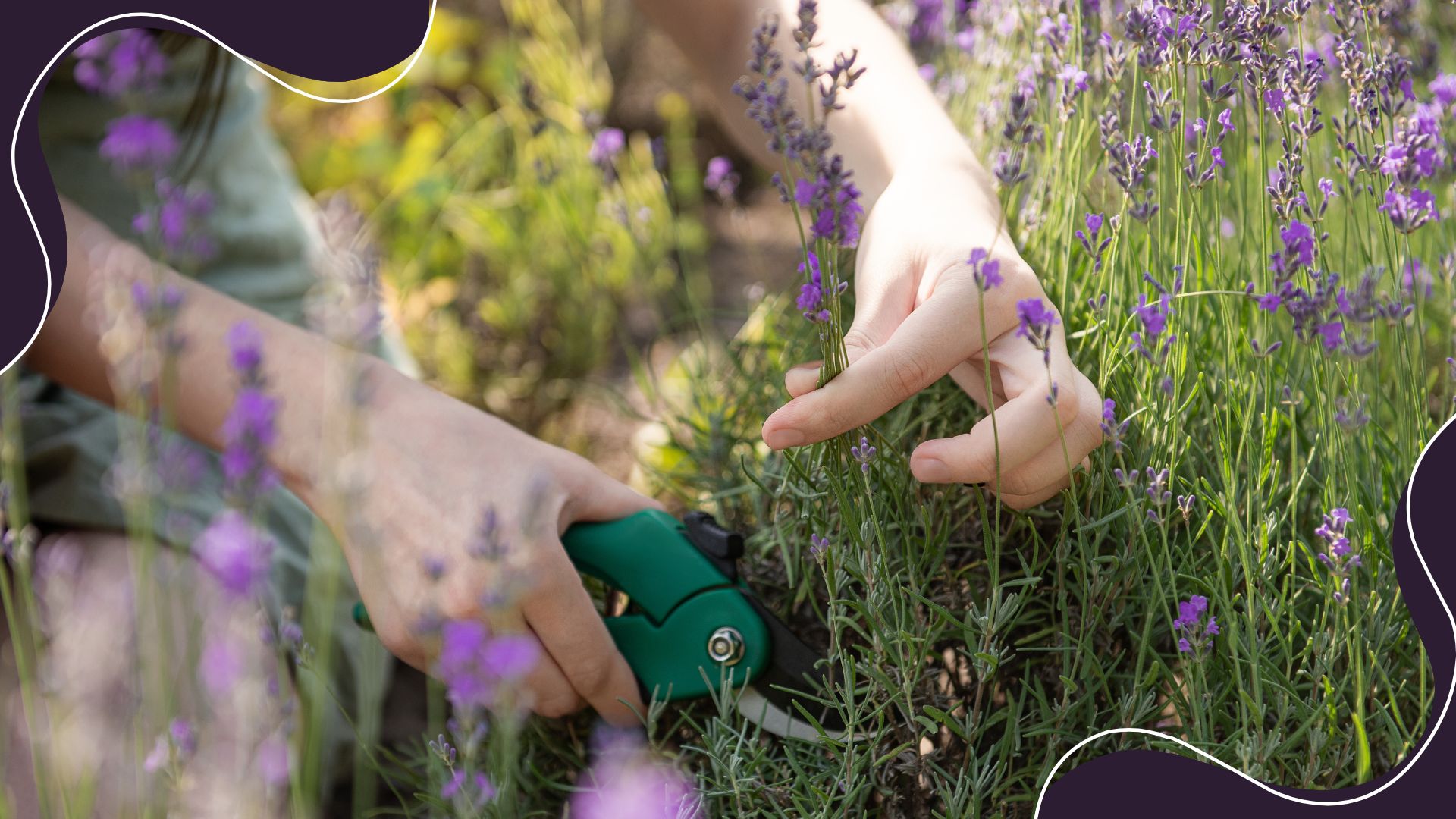
With its soothing fragrance and vibrant purple flowers, it's little wonder that so many people are in love with lavender, but you need to know how to prune lavender if you want to keep this relaxing herb looking its picture-perfect best.
It's been said time and time again that caring for lavender and being around its scent reminds us to find calmness in every moment. And little wonder: after all, it's one of the most alluring plants around thanks to its abundance of therapeutic benefits.
Just as you need to learn how to prune roses and how to prune clematis to maximise blooming, though, the same is true of lavender.
It's also the best way to keep these fragrant garden plants from getting woody and leggy, so it's well worth doing the job properly, especially if you want it to look lovely in photos.
How to prune lavender: an expert guide
With its fabulous fragrance and rustic charm, lavender is completely at home among its fellow cottage garden plants – but it does need some TLC if you want it to look its best.
If your lavender looks particularly untidy or frost-damaged, it benefits from being given a prune in the early springtime. Otherwise, "It's best to prune lavender after flowering, either in later summer or early autumn," says RHS-trained gardener Andrew O'Donoghue, co-founder of Gardens Revived.
What you will need
Unlike avoiding multiple lawn care mistakes, you won't need an abundance of tools for this gardening job: all you really need is a pair of sharp (and clean) secateurs.
You might also like to have a bag to hand for your lavender cuttings, ready to transport them to your compost bin, and possibly a pair of gardening all-purpose gloves.

RRP: £27.02 | These practical yet pretty gloves, with adjustable wrist straps and touch-screen-compatible fingertips, are ideal for protecting your hands while tending to prune lavender.
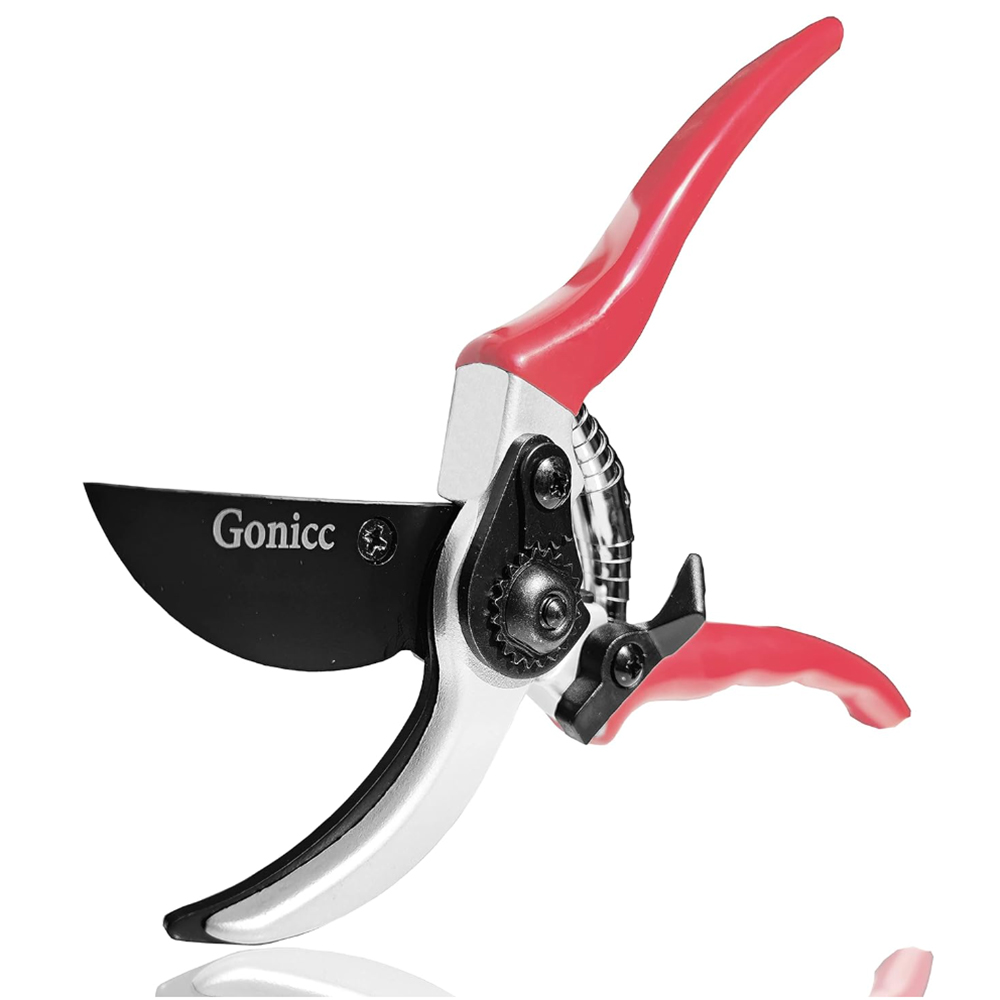
RRP: was £17, now £8.10 | Consider this professional pruner a must-have tool. These best-selling secateurs feature ergonomically designed handles and a sharp steel blade to do the job with ease.
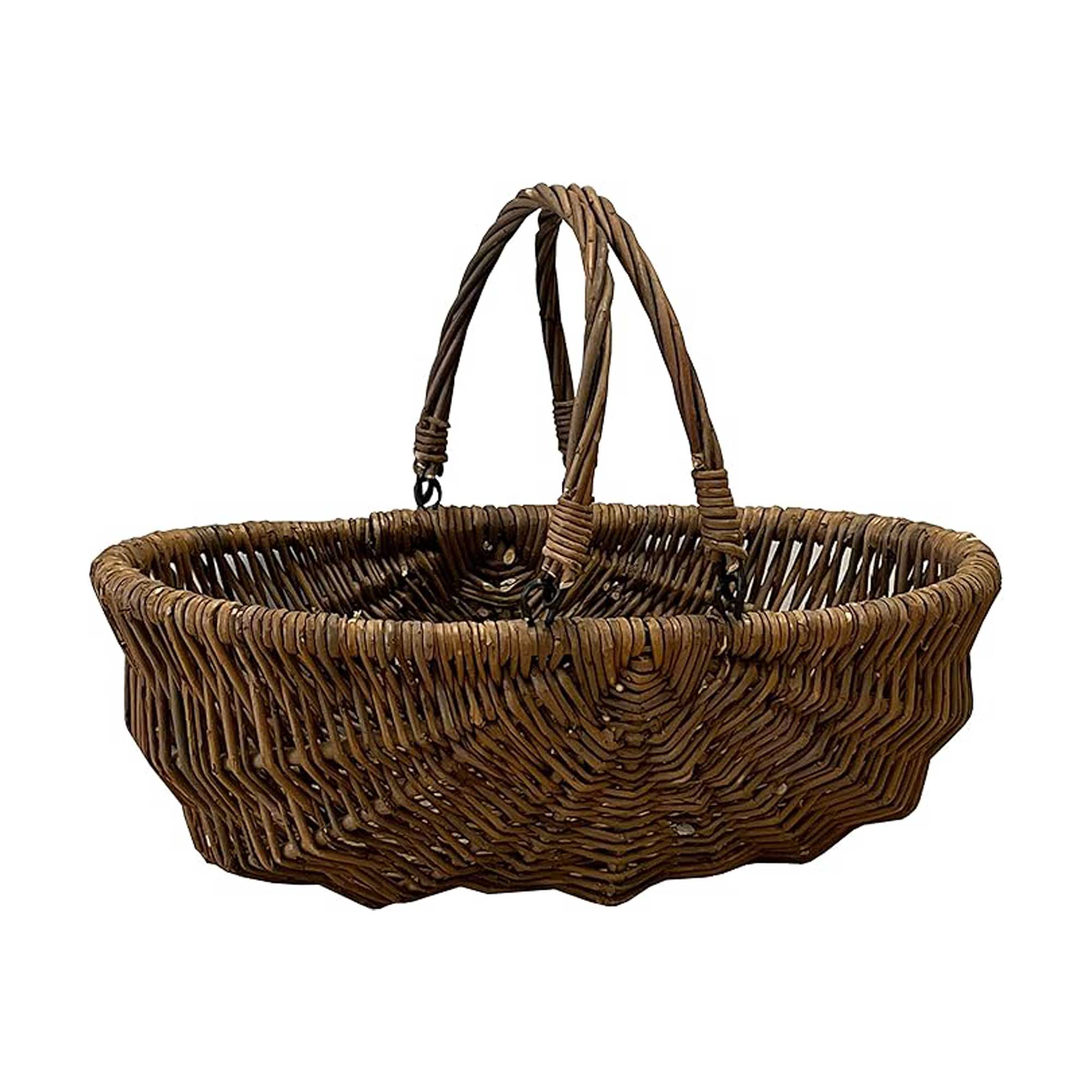
RRP: £21.98 | Gather your freshly pruned branches and flower heads in style with this rustic basket from Selections, complete with folding handles.
Step-by-step guide
Now you've got your gardening essentials at the ready, the next step is figuring out which variety you’re working with.
The options are:
- English lavender: a hardier variety that requires more pruning (usually in August or September)
- French lavender: a frost-hardy variety that requires a gentle prune and deadheading throughout the season (do not cut them back later than mid-September)
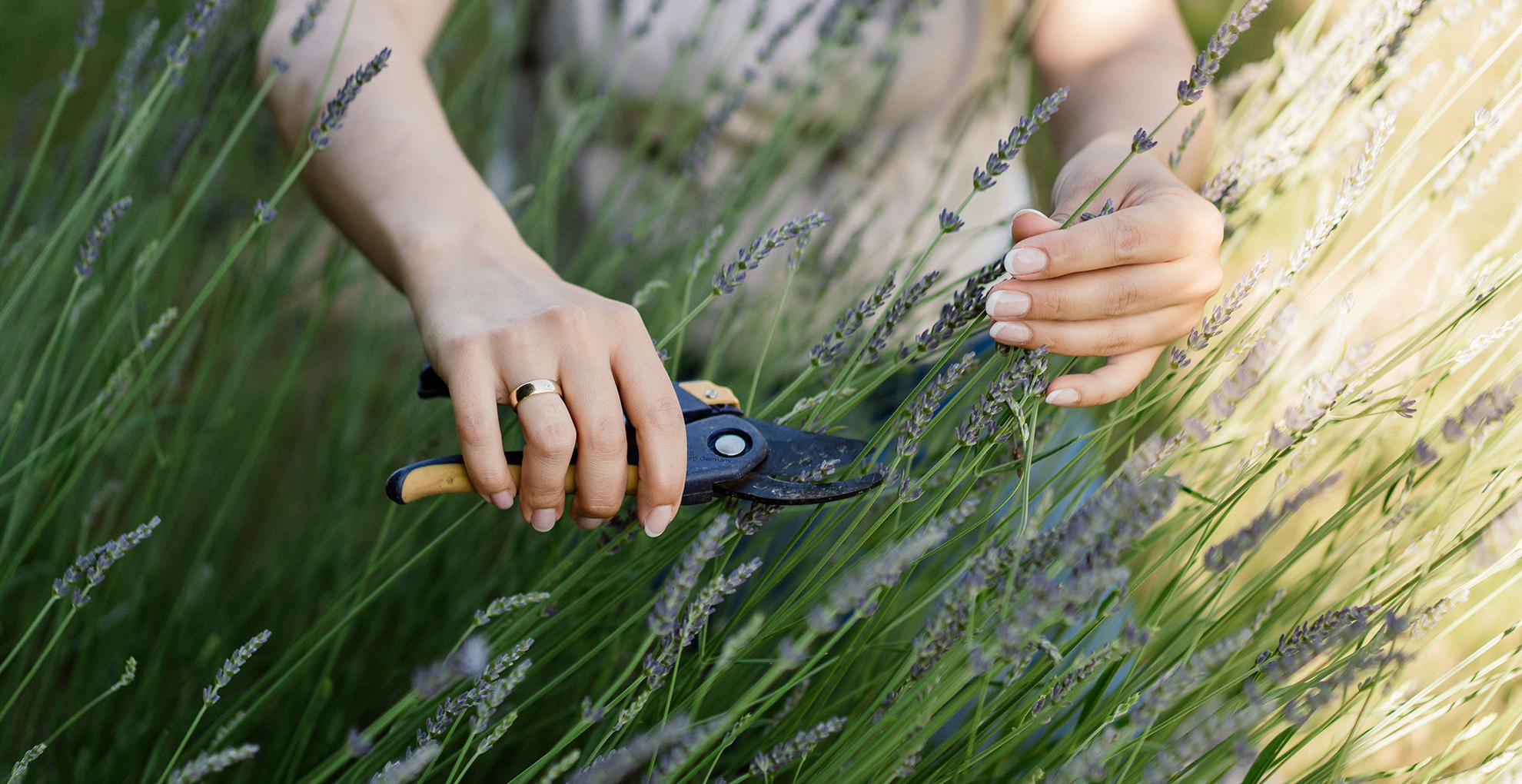
Once that's done, all that's left to do is the following...
1. In springtime
If you're tidying your lavender plants up in the springtime, Andrew says to prune back any dead or damaged stems and trim back about one-third of the plant into an even shape.
"Avoid cutting into the woody base," he adds, "and be sure to cut to just above a group of new shoots. Otherwise, your plant is unlikely to grow back."
2. In summer...
Come summertime, it's best to wait until after your plants have flowered before you get to work on making your How To Prune Lavender 101 dreams a reality. We'd recommend adding it to your essential summer jobs for later in the season.
"You'll want to remove any spent flowers and about 2.5cm of leaf growth," says Andrew.
"Again, be sure to deadhead throughout the growing season, and be sure to cut down to just above a new group of shoots."
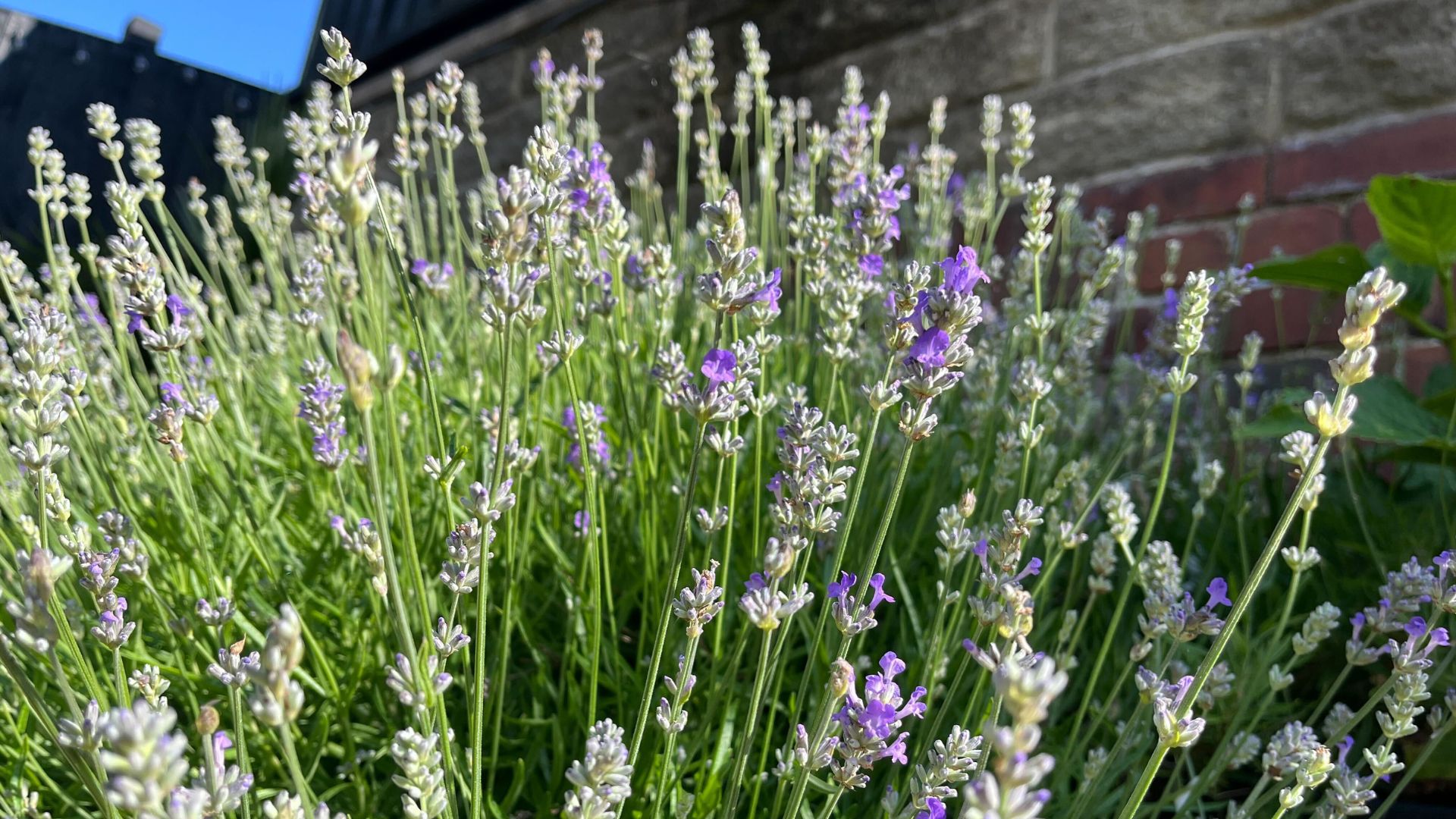
Learning how to prune lavender isn't all hard work; it's actually an incredibly sensory experience, so long as you allow yourself the time to enjoy it. This is why they're such a great plant for sensory gardens; the fragrance coming off the plant is a real joy.
"Don’t forget to roll the flower heads removed in your hand for a fresh lavender smell," says Andrew.
FAQs
How do you prune lavender without killing it?
If you want to prune lavender without killing it, the most important thing to do is make sure that you’re using sharp, clean secateurs; this ensures a clean cut and minimises the risk of disease.
Most gardening experts, too, will caution you to cut each branch on a downward diagonal, as this will stop rainwater from pooling in the wound and allow disease or rot to take hold.
Be sure to water your plant if needed, but be wary of overwatering: you’re about to enter the plant’s dormant season, so you don’t want to encourage it to grow or have it sit wet for a long time. Knowing how to water your garden plants properly through the changing seasons is so important for their long-term health.
When should lavender be pruned?
All lavender – whatever the variety – needs to be pruned annually if you want it to thrive. It’s best to tackle the job after the plant has finished flowering (usually in August or September), using a sharp pair of secateurs and taking care to cut back to just above a group of new shoots.
You can tidy the plant up and give it a shape, too. And don’t forget to deadhead – which means, for all the greener gardeners out there, remove the spent flowers – throughout the summer, too. But if you're lucky, your lavender plant should be joining your late summer flowers right to the end of the season.
What are the benefits of deadheading lavender?
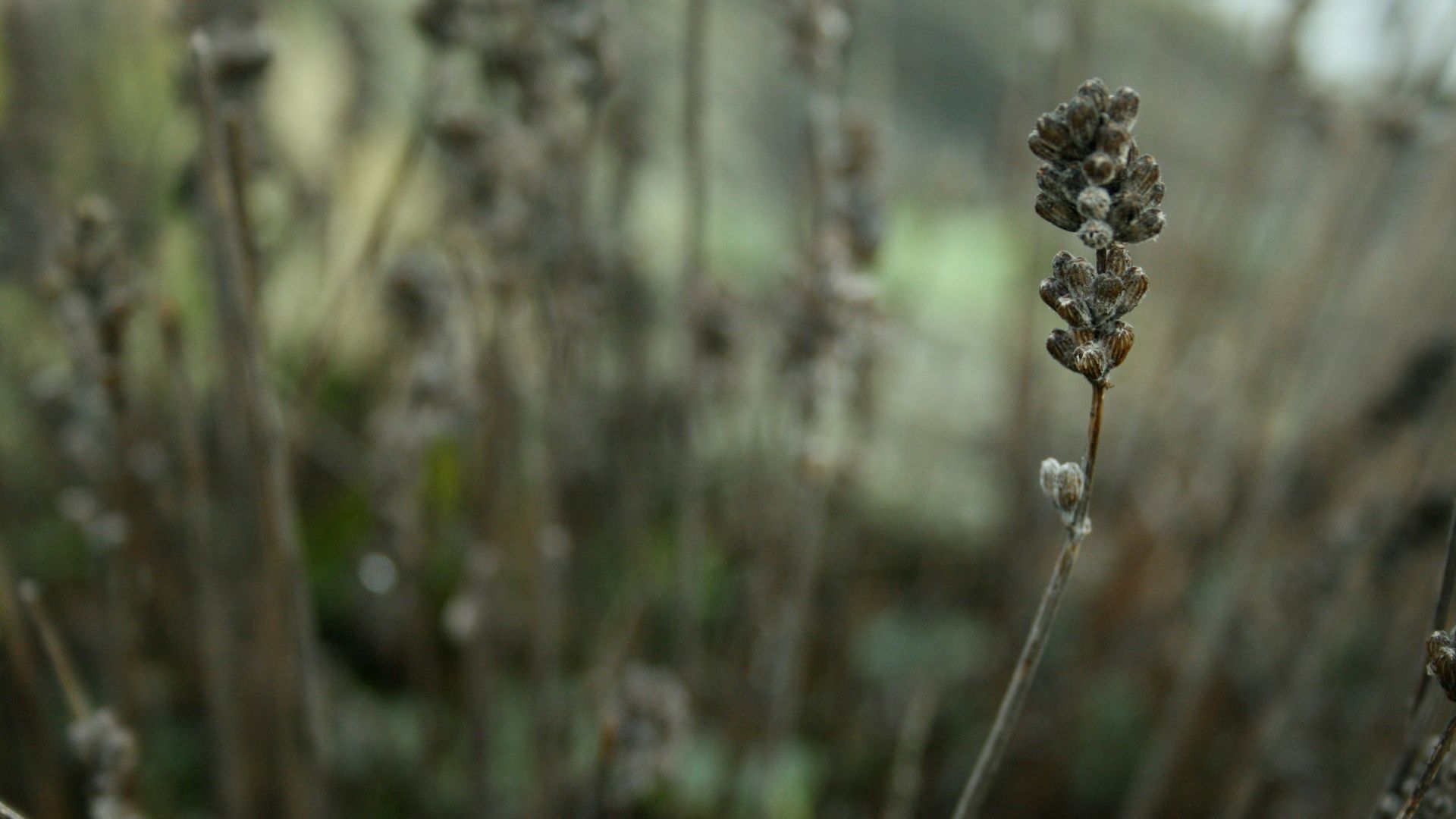
There are a few good reasons you need to learn how to deadhead certain plants in your garden, and it's a really rewarding and easy task to do.
"Deadheading prolongs the flowering period. Just by removing spent blooms, you encourage the plant to produce more flowers, keeping your garden vibrant for longer," explains Luke Newnes, garden specialist and member of the Interior Squad at Hillarys.
He also points out that deadheading will help keep the plant neat, as it instantly refreshes the appearance.
"Taking off old flower stems also helps the plant focus on producing new shoots, which keeps it bushy and healthy. And if you’d rather not have lavender popping up all over the place, deadheading before seeds form is a good idea," adds Luke.
What happens if you don't deadhead lavender?
All that happens if you don't deadhead lavender is that it grows wild and can get out of control. It doesn't matter too much if you've let things get too out of control.
Lavender is extremely fast-growing and establishes quickly, so you can simply dig out the overgrown clumps and replace them with new plants if you want things looking spick-and-span fast.
Unlike some of the plants you should never deadhead, lavender is pretty low maintenance in the way that it won't be affected either way. It's more about appearance, and if you want to control its growth in a certain area of your garden.
Now that you know how to prune lavender, you can settle back and enjoy your perfumed blooms until summer is almost over – then, and only then, should you set to work tidying them up and trimming them back.
You might also want to learn how to overwinter your lavender plants so you can be guaranteed blooms come springtime next year.







